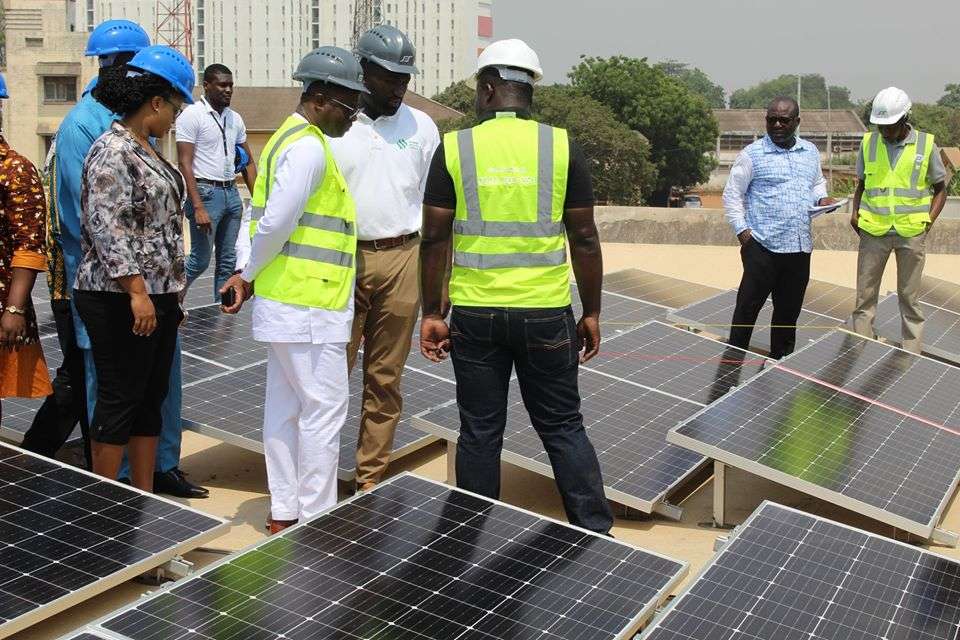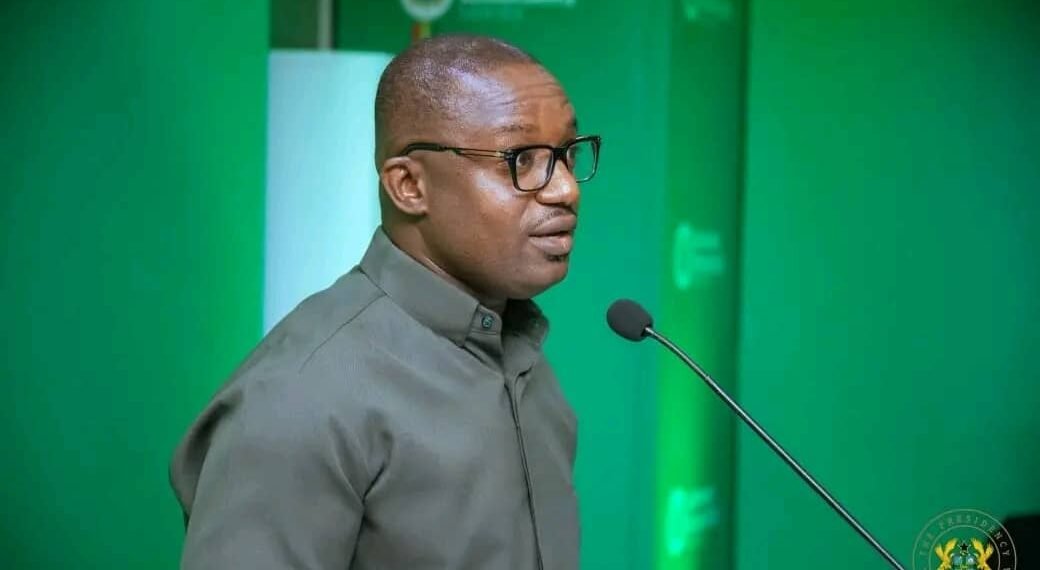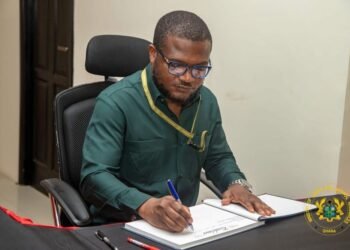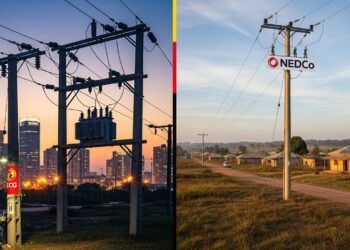The Minister for Energy and Green Transition, John Abu Jinapor, has announced a sweeping set of policy interventions aimed at accelerating Ghana’s transition to renewable energy. Speaking at the Government Accountability Series held in Accra, the Minister outlined new initiatives designed to diversify the country’s energy mix, improve local capacity, and ensure equitable access to clean energy solutions across Ghana.
At the heart of the government’s effort is the Ghana Scaling Up Renewable Energy Project, launched in May 2025. Funded through an $85 million grant from the African Development Bank’s Climate Investment Fund, the project aims to deliver solar energy solutions to thousands of households and public facilities.
“This initiative is a landmark in our journey toward energy equity.
“We are deploying over 12,000 solar PV meters, electrifying 47 island communities, and distributing 1,400 solar systems to remote households and key public institutions.”
Hon. John Abdulai Jinapor, Minister for Energy and Green Transition
This bold move, he said, is intended not only to boost energy access but also to alleviate pressure on Ghana’s hydroelectric resources by leveraging solar energy during peak sunlight hours.

Among the most notable projects is the development of 200 megawatts of solar capacity across different regions of the country.
A key feature is the construction of a 25 MW floating solar plant at the Bui Power Station, which will increase its total solar capacity to 30 MW. The plant is being manufactured locally, aligning with Ghana’s local content policy.
Further enhancing the country’s renewable portfolio, the Minister revealed that the Volta River Authority (VRA) is spearheading a 30 MW floating solar power plant at the Kpong Hydro Reservoir, funded by German development bank KfW.
These floating installations represent a strategic effort to maximize land use efficiency while preserving valuable ecosystems.
“We’re adopting a hybrid energy model where solar energy powers the grid by day, allowing hydro dams to serve as ‘batteries’ at night.
“This dual system not only extends the lifespan of our dams but also provides a stable power supply.”
Hon. John Abdulai Jinapor, Minister for Energy and Green Transition
Building Local Capacity and Green Jobs

A cornerstone of the government’s strategy is local workforce development. Through a partnership with the International Solar Alliance, Ghana is rolling out training programs aimed at creating employment opportunities in solar technology and installation.
“We are not just installing panels; we are building human capital.
“Our goal is to make sure Ghanaians are the primary beneficiaries of the green energy transition.”
Hon. John Abdulai Jinapor, Minister for Energy and Green Transition
Ghana will also host the West Africa Committee on Solar Alliance in September, with Hon. Jinapor serving as Vice President of the continental body, a move that further cements Ghana’s leadership in Africa’s green energy conversation.
The Minister revealed that Ghana is close to passing a Renewable Energy Authority Act, which will formalize a central regulatory body to steer renewables development.
Simultaneously, a new Renewable and Green Transition Fund has been established to address financing gaps and attract additional capital for large-scale projects.
“We are also working to that we distribute 450 thousand LPG cookstoves to increase access to clean cooking in Ghana.”
Hon. John Abdulai Jinapor, Minister for Energy and Green Transition
Hon. Jinapor noted that the government is also investing in solar-powered street lighting, with plans to deploy 23,500 units covering 700 kilometers. This effort will help offload the national grid and promote energy efficiency in public infrastructure.
“We are working tirelessly to bring some government agencies, departments, clinics, schools and institutions on board by installing solar rooftop to bring efficiency and reduce their billing from the national grid.”
Hon. John Abdulai Jinapor, Minister for Energy and Green Transition
EV Promotion

In line with global trends, the Ministry recently launched an Electric Vehicle (EV) Promotion Programme, prioritizing the import of solar-charged electric vehicles for government agencies.
“We will, in collaboration with the private sector, extend it for other commercial drivers and more people to use so that EV vehicles would become the norm so far as Ghana is concern.”
Hon. John Abdulai Jinapor, Minister for Energy and Green Transition
Looking ahead, the Ministry is developing a five-year renewable energy and green transition strategy, which will serve as a national blueprint for policy, investment, and implementation through 2030.
The Minister’s announcements reflect a renewed urgency to position Ghana as a climate-resilient, energy-secure, and economically inclusive nation.
With interventions that range from solar mini-grids to floating panels, EVs to clean cooking, the government’s roadmap signals a comprehensive and future-facing energy transition.
READ ALSO: Ghana Fire Service Records Major Progress Amid Resource Constraints























